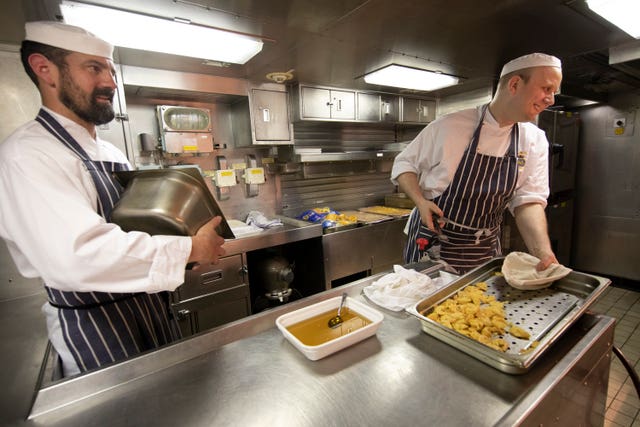“They are a great source of morale,” says Lieutenant Oli Hounslow as he describes the two 60-word messages submariners out on patrol can receive from home each week.
Once the 150 metre-long Vanguard-class vessel slips under the waves to provide Britain’s continuous at-sea nuclear deterrent, contact with the outside world is minimal.
Known as “familygrams”, the messages are to the point and often missing punctuation to make the most of the character limit. Those who receive them do not get to send a reply.
With access to the radio through the aerial wire a submarine tows behind the vessel, there is no social media or connectivity to modern technological trappings once on board.

Covered in acoustic cladding, the objective of the submarines carrying the country’s nuclear deterrent is to remain hidden and undetected.
Noise is kept to a minimum, the crew breathe oxygen that is created on board and there are no windows – with vitamin D tablets available to make up for the lack of sunlight.
The crew of more than 160 often work in watches of six hours on and six hours off, with food becoming a central feature within their working days.
Five chefs working on board the submarine cook four meals a day for the crew, with the menus and what is being served denoting the time of day and day of the week.
Carrying food stores of up to 150 days, the chefs have facilities including two ovens, a range plate and fryer at their disposal.

But space on board is tight, almost claustrophobic.
Up to nine submariners will often share a bedroom, with the bunks stacked on top of each other and only small lockers to store their belongings.
Leading Hand Darren Richardson, as he gave a tour of HMS Vigilant, described the beds as comfortable and said that everyone must keep the space clean and tidy.
He revealed that when they are sailing in rough water they will often wedge their boots under their mattresses to give them some height and to stop them rolling off.

He joined the submarine service in 1989 – just a few years before the first patrol of the Vanguard-class boats – and said they are “incredibly well-built”.
“You think about the usage these submarines have had over 25 years and they are still pretty robust,” the 51-year-old added.
“In this submarine you can find original kit next to AI (artificial intelligence) almost. But the things that don’t get changed is because they don’t need to, they are robust and resilient.”
He added that due to the age of some of the equipment, a number of modern threats almost “don’t even apply” in some areas.






